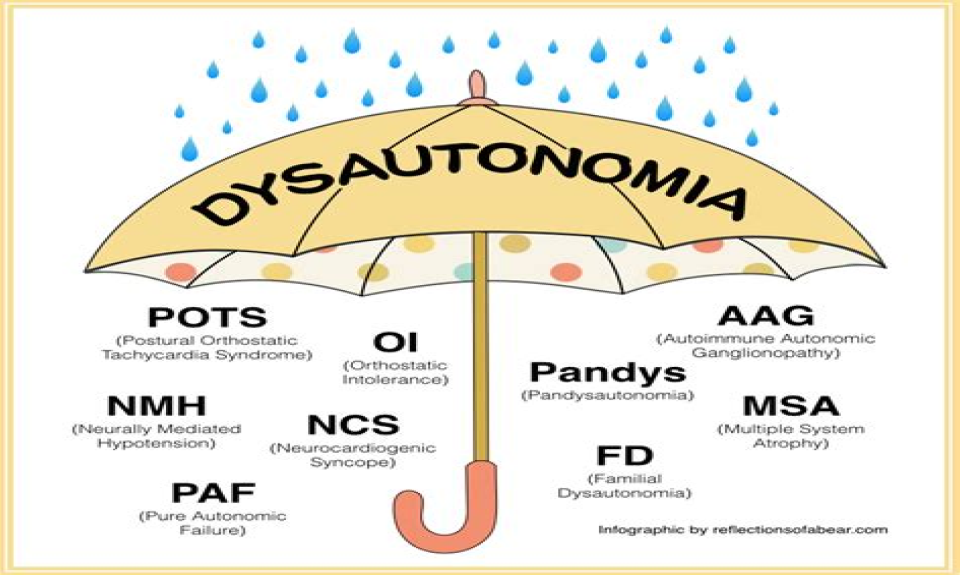Authors: Cleveland Clinic
What is dysautonomia?
Dysautonomia is a general term for a group of disorders that share a common problem – that is, an autonomic nervous system (ANS) that doesn’t function as it should. The ANS is the part of the nervous system that controls involuntary body functions (functions you don’t consciously control) like your heart rate, blood pressure, breathing, digestion, body and skin temperature, hormonal function, bladder function, sexual function and many other functions.
When the ANS doesn’t work the way it should, it can cause heart and blood pressure problems, breathing trouble, loss of bladder control and many other problems.
Who might get dysautonomia?
Dysautonomia, also called autonomic dysfunction or autonomic neuropathy, is relatively common. Worldwide, it affects more than 70 million people. It can be present at birth or appear gradually or suddenly at any age. Dysautonomia can be mild to serious in severity and even fatal (rarely). It affects women and men equally.
Dysautonomia can occur as its own disorder, without the presence of other diseases. This is called primary dysautonomia. It can also occur as a condition of another disease. This is called secondary dysautonomia.
Examples of diseases in which secondary dysautonomia can occur include:
For More Information: https://my.clevelandclinic.org/health/diseases/6004-dysautonomia
